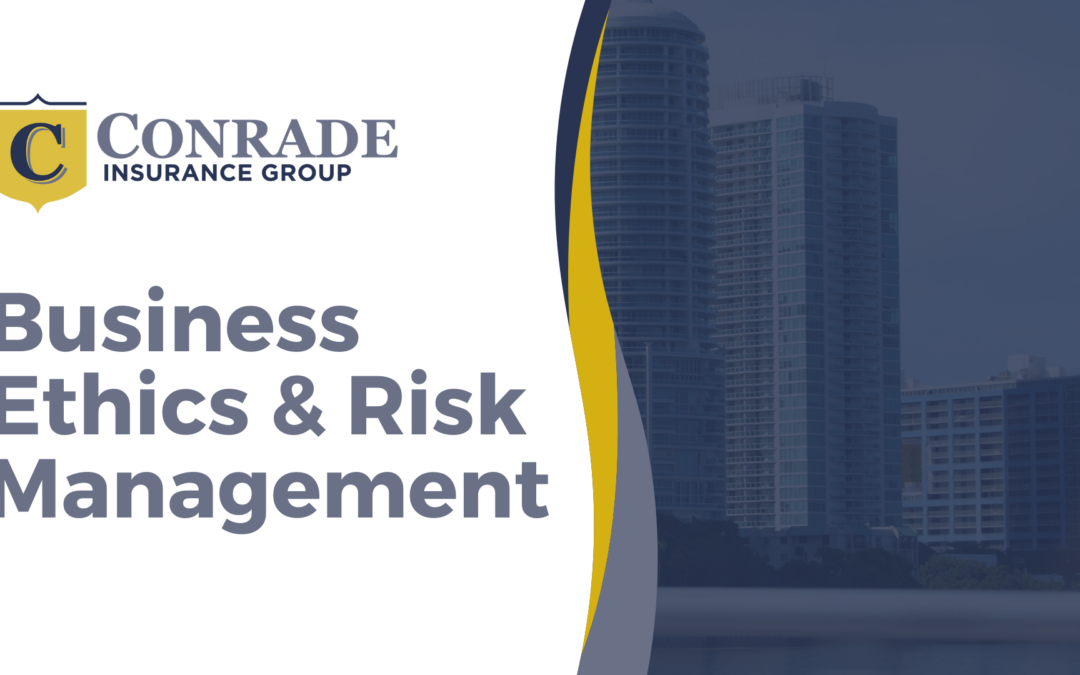In today’s complex global business environment, companies of all sizes face many ethical issues. Business leaders have a responsibility to develop codes of conduct and ethics that every member of the organization must abide by and put into action.
Sound ethical practices are a must for your risk management success. An open and transparent business culture is an early warning system for potential fraud, misconduct, and questionable workplace behaviors.
It’s important to connect your business risk management policies and practices with the culture and values of your business. All of your people must act ethically for your organization to succeed in managing risk.
Assessing your risk
The first step is to understand the risks you face. What risks are inherent in your industry or your business? Risks can include:
- Financial losses from your supply chain
- Asset theft and other fraud
- Regulatory violations
- Allegations of bribery and corruption
- Issues related to corporate responsibility, such as breaching environmental safeguards
You need to review each of your key risks, like corruption, information technology security, and corporate espionage. Then, you must ensure you have a program to address each one. Here are some questions to consider when assessing your risks:
- Who is responsible and accountable when problems arise?
- If you have processes and controls in place, are they adequate?
- Are you regularly reviewing your business partner arrangements, incident response plans, and whistleblowing policies?
- Do you have appropriate plans for handling a regulatory or weather crisis?
Ethical risks
Ethical risk exposes your company to reputational risk, and a loss of reputation can be far more damaging than a financial loss. It’s useful to think about organizational, cultural, and social values as a source of intangible business risk. Here are four key categories of ethical risk:
1. Fundamental ethical issues. Your business should be built on a framework of integrity and trust. This includes conducting your business affairs with honesty and a commitment to treating every customer fairly.
2. Compliance and governance issues. Your business is expected to fully comply with environmental laws, federal and state safety regulations, fiscal and monetary reporting statutes, and all applicable civil rights laws.
3. Diversity and a respectful workplace. Your current and potential employees should be a diverse collection of people. When they choose to work for you, their differences and contributions should be respected.
4. Decision-making issues. Decision-making processes should center on protecting employee and customer rights, making sure all business operations are fair and just, protecting the common good, and protecting workers’ values and beliefs.
Loss of control and leadership
Risk management, particularly loss control, begins at the top of your organization. Emphasize safety, compliance, and lawful and ethical behavior, and the rest of the organization will likely follow suit.
There are several things leaders should do to promote a strong ethics culture:
- Talk about the importance of ethics.
- Inform employees about decisions that may impact them.
- Uphold promises and commitments to employees and stakeholders.
- Acknowledge and reward ethical conduct.
- Hold accountable those who violate standards.
- Model ethical conduct both professionally and personally.
When it comes to ethical leadership, there are two key things to keep in mind:
1. Character is paramount. Ethical leaders show integrity in the way they conduct themselves at work and in their personal relationships.
2. Leadership happens at all levels. While senior leaders set the tone for the entire organization, supervisors shape the everyday environments in which employees work and make decisions. The actions of supervisors profoundly impact employees and their workplace conduct.
Ethical behavior is established through concrete policies, employee training, effective internal controls, and, most importantly, examples.
Problems and risks are inherent in every business. Creating a culture of good business ethics will support your risk management efforts every day.
Do you need additional guidance for your risk management program? Talk with a Conrade insurance professional. They can provide expert insights on how to best protect your business.

